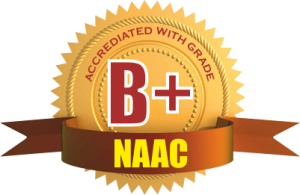Best Practice 1
Title: Decentralized Working Environment and Participative Decision Making: Leading the way to Effective Teaching and Learning
Objective:
· To involve teachers in decision making in academic and administrative matters.
· To motivate commitment in the team towards institutional responsibilities.
· Division of work and specialization to ensure the best outcome and smooth working process
· To inspire Teacher Leadership and effective team building
· Establishing strong and effective communication
Context:
With the aim to provide effective teaching and learning environment, decentralized approach to decision making has been adopted. There is proper delegation of all responsibilities among teachers on rotational basis ensuring inclusiveness regarding all academic matters facilitating knowledge gain and skill development in all areas. It empowers the teaching faculty to suggest innovative ideas as to increase students’, participation in various curricular and co-curricular activities and improves their academic performance.
Practice
At the beginning of the session, the head of the institution in consultation with IQAC decides the Course Coordinators and Class Teachers based on their expertise and experience. Then this is communicated/notified officially. Course Coordinators and Class Teachers are facilitators within the college and play an important role in communicating and improving college practices. Besides there are various executive cells for general management and administration of the college. The Individual faculty in charge of any cell initiates the planning of any program/activity and then it is discussed with Principal along with Academic and Cultural Coordinator for suggestions. Once it is finalized, it is again notified and acted upon. At the end, head of the institution monitors the overall teaching and learning process.
Evidence: The practice is followed so diligently that, even if the head of the institution is not present for some time, the faculty in-charge of various responsibilities handles the assigned work honestly and with full dedication and the college runs smoothly.
Outcome
· Creates positive learning relationships between teachers and students and among students.
· Establishes better classroom routines and strong teacher taught ties
· Channelizes students’ energy in right direction
· Engages the student in learning process positively
· Improves curricular, instructional and assessment practices
· Fosters Motivation and Team building
· Speedy resolution of students’ problems
· Smooth and Stress-free working Environment
· Ensures timely and accurate reporting practice
· Enhances sense of self discipline in students and dutiful in teachers.
· Achievement of better cognitive, emotional, and intellectual development
· Improves overall students’ performance and decision-making ability
Problems Encountered and Resources Required – No problem is seen in execution as work allocation is done judicially and complete support is extended. No additional resources required in terms of implementation.
Best Practice 2
Title: Doing our bit for a sustainable world!
Objective:
· To draw attention towards the aims and objectives of environmental education.
· To develop and implement Environment and Social strategy, with a focus on climate risk, water positivity, plastic negativity, and increasing green cover.
· To prioritise reuse over recycling, making recycling enjoyable, transforming waste into reusable items thereby contributing to a more sustainable approach.
· To drive best-in-class Sustainability (SDG) performance for the college and the community.
Context:
“We have been given a warning by science and a wake-up call by nature;
It is up to us now to heed them.”
Embracing environmental friendliness is crucial for preserving our planet for future generations fostering healthier ecosystems and communities.
Practice:
Acknowledging areas for improvement in global environmental care, Jagran College of Arts, Science, and Commerce formed the Snippet club, prioritizing reuse over recycling. The team of students under the mentorship of Dr. Swati Dwivedi made recycling enjoyable, transforming waste into reusable items over a 25-day period during the month of May 2021. Since then, it has become a way of life for college community.
Another noteworthy initiative is the appointment of 17 students as Sustainable Development Goals Ambassadors each one of them is responsible for creating awareness about their respective SDG, advocating for their implementation and mobilising action at college and community level through activities such as public speaking, media campaigns, community outreach and partnering with organisations to advance the SDGs agenda.
Evidence:
SNIPPET CLUB: This initiative repurposed scrap materials from various sources to create useful items leading to a sustainable approach.
SDG Ambassadors: SDG ambassadors the college community is making concerted efforts for environment conservation in addressing global challenges.
Outcome
· Drew attention towards the aims and objectives of environmental education and creation of pragmatic learning environment by channelising their energy in the right direction.
· Students learnt that implementing innovative solutions does not demand complex or burdensome efforts; rather, it involves a shift in how we view ‘trash’
· Development of recycling programs, have set an explicit goal of minimizing landfill usage, which makes recycling its own discrete undertaking.
· Crafting artwork and decorative pieces for college events using repurposed materials.
· Organizing a green fair with a team to teach students about the significance of recycling and reusing resources.
Students actively participate in awareness campaigns by writing slogans and articles, showcasing their enthusiasm and dedication towards promoting environmental awareness and advocating for a greener future.
· Engages the student in learning process positively and leaving them with high spirits looking into their own creativities they realized, we can do it!
Problems Encountered and Resources Required –
ü Snippet Club encountered significant challenges in managing scraps and waste products, requiring substantial effort to gather sufficient quantity besides sorting through the scraps to identify those of value and high demand, lack of commitment, time constraints, and insufficient instructional resources were the other major challenges faced by the team.
ü Resources for recycling, encompassing manpower, finance, and a diverse array of materials such as paper, cardboard, plastics, glass, aluminium, batteries, electronics, food waste, lawn materials, used oil, household hazardous waste, tires, metal, computers, cell phones, and miscellaneous items, offer a range of opportunities. Repurposing office hold items for reuse appears to yield the most satisfying outcomes.



